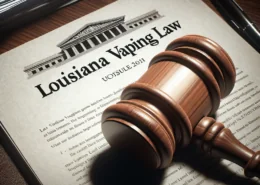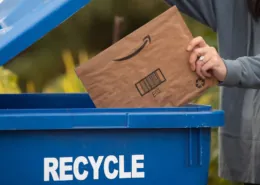Exploring the UK Age Limit for Vaping and Rising Youth Interest
We’ve all heard the recent buzz about vaping. Perhaps you’ve even noticed more and more teenagers puffing on slim devices that emit flavored clouds of vapor. But, did you know there’s been a staggering 50% surge in vaping among 11 to 17-year-olds in the UK within just a year? This increase occurs even amidst set age restrictions, as a YouGov study conducted for Action on Smoking and Health has revealed.
Fascinatingly, the study included 2,656 participants and found that these underage vapers often choose disposable vapes purchased from local corner shops. So, what does this mean for our young ones and the regulations set in place to protect them? Let’s dive in and find out.
UK Vaping Age Limit
In the UK, selling vapes and e-cigarettes to anyone below 18 is illegal. This rule is a part of the Tobacco and Related Product Regulations 2016, which also stipulates that vapes must be child-resistant and carry clear warnings on their packaging.
Moreover, to shield the youth from the aggressive promotion of vaping products, advertising is heavily curtailed. This includes all print, broadcast, online, and other electronic media. However, vapes can be displayed in retail stores, and there is no ban on giving out free vape products to people of any age.
Read more:
Vaping Laws in UK
Government Intervention
In light of these findings, a review was commissioned by the Department of Health and Social Care in June 2022. The review proposed that the loophole allowing free vaping samples be sealed. It also recommended restrictions on vape packaging to avoid appealing to children, and a thorough examination of vape flavorings.
Such preventive steps are already in effect in countries like Canada, where specific flavours that appeal to children have been restricted, and New Zealand, which has limited the types of retailers that can sell flavored vapes.
Global Vaping Laws
Following the World Health Organization’s advice to ban or regulate vapes, approximately 40 nations have chosen to completely prohibit vapes. For instance, vaping products are entirely illegal in Argentina, Brazil, and Nepal. In Australia, only individuals with a doctor’s prescription can use vapes containing nicotine; else, they may face penalties, even imprisonment.
Read more:
Australia to Ban Non-Prescription Vapes in Biggest Vaping Reforms
Health Impacts of Vaping
The NHS notes that vapes are “less harmful than cigarettes“, yet the long-term risks of vaping are still a mystery. Furthermore, there is a significant lack of studies on the effects of second-hand vaping exposure.
Environmental Impact of Vaping
Beyond human health, vaping has considerable environmental implications. A Material Focus study showed that every week, an astonishing 1.3 million vapes are discarded, leading to a yearly accumulation of 10 tonnes of lithium. This is equivalent to the batteries of 1,200 electric cars.
Disposable vapes pose a serious threat to waterways and soil, endangering animals and plants. Some vaping scents even attract animals such as foxes, leading to them gnawing on discarded vapes. Moreover, lithium-ion batteries in vapes pose a significant fire risk if not properly recycled, as they can ignite when compressed in a refuse vehicle or at a waste-processing plant.
Read more:
Conclusion
Despite age restrictions, the rise in youth vaping is concerning. There is a need for stricter regulations on access to vaping products, especially among young people. The impacts on health and environment further underline the need for immediate action.
FAQs
What is the age limit for vaping in the UK?
In the UK, the legal age for vaping is 18. It’s illegal to sell vapes and e-cigarettes to anyone under this age.
Why are children attracted to vaping?
Various factors contribute to the allure of vaping for children. These include the availability of appealing flavors, the perceived “cool” factor, peer influence, and the misconception that vaping is less harmful than traditional smoking.
What measures are being proposed to control children’s access to vapes?
There are proposals to close the loophole allowing free vaping samples, restricting vape packaging images and descriptions that appeal to children, and reviewing vape flavorings.
Are there countries where vaping is completely banned?
Yes, about 40 countries, following the advice of the World Health Organization, have made vapes completely illegal. These countries include Argentina, Brazil, and Nepal.
How does vaping impact the environment?
Vaping significantly impacts the environment. Discarded vapes contribute to lithium pollution, contaminate waterways and soil, and endanger animals and plants. Improperly recycled lithium-ion batteries in vapes are a significant fire risk.
- Is It Illegal to Vape or Smoke While Driving in Minnesota? - August 15, 2025
- American Airlines Vaping Passenger Alleges Assault in Police Report - August 15, 2025
- NEXA PIX 35K Disposable Vape with Crystal Tank Review - August 15, 2025









